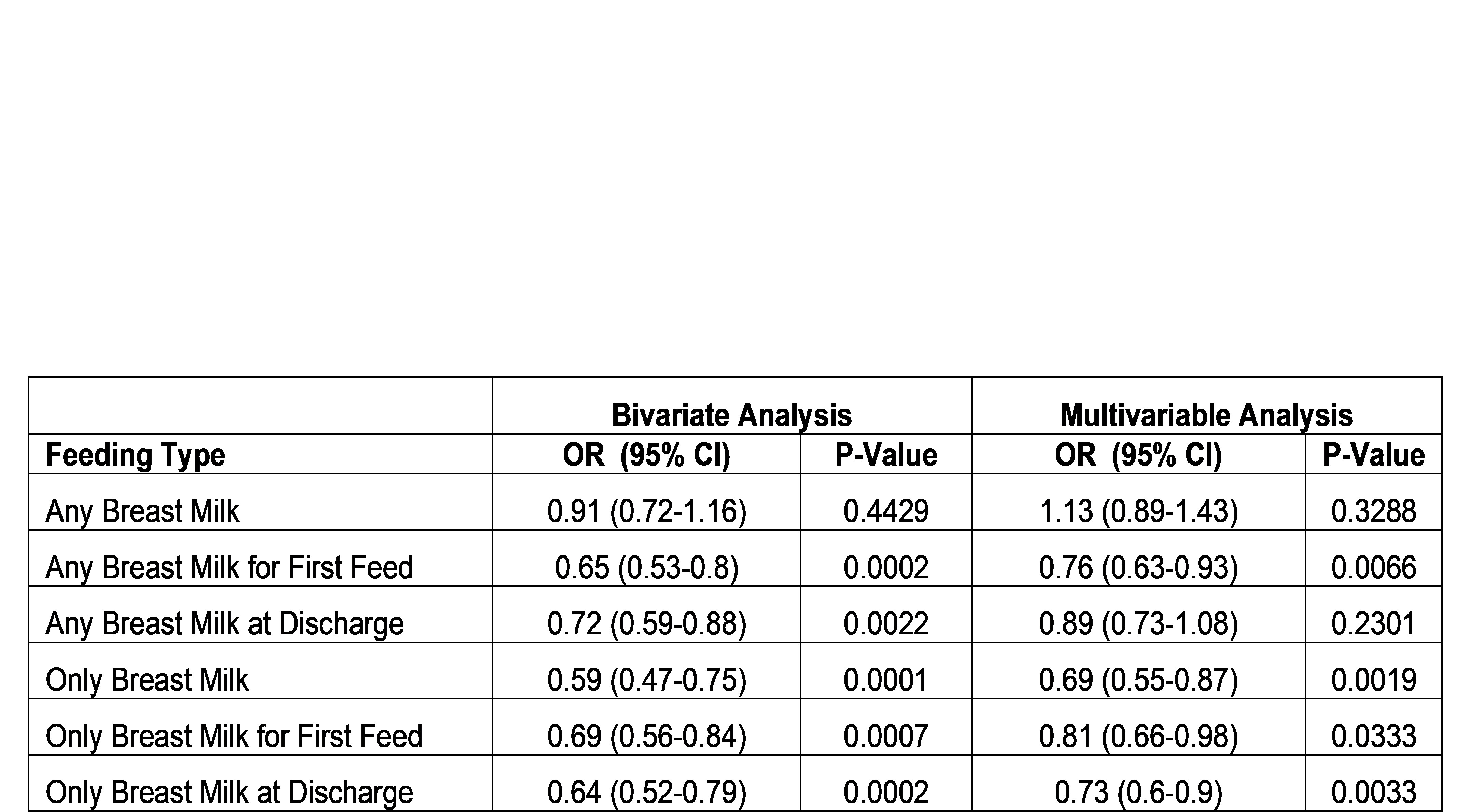Breastfeeding/Human Milk
Session: Breastfeeding/Human Milk 1: Breastfeeding
470 - Association between hospital feeding patterns and childhood asthma
Sunday, May 5, 2024
3:30 PM - 6:00 PM ET
Poster Number: 470
Publication Number: 470.1912
Publication Number: 470.1912

Jennifer McAllister, MD (she/her/hers)
Associate Professor
Cincinnati Children's Hospital
Cincinnati, Ohio, United States
Presenting Author(s)
Background: Breast milk is the optimal nutrition for newborns, and breastfed infants have a decreased risk of developing many childhood illnesses, including asthma. Studies have shown that longer periods of exclusive breastfeeding confer greater protection against asthma, but few studies have evaluated the impact of birth hospital feeding patterns on childhood asthma.
Objective: To examine the relationship between breastfeeding patterns during birth hospitalization and the diagnosis of childhood asthma.
Design/Methods: We utilized the Maternal Infant Data Hub (MIDH), which is a regional perinatal data repository of maternal and infant data of dyads born within a large academic hospital system and linked to childhood data within the regional children’s hospital. Children born between 2017-2019 were included. Demographic information including sex, race, and insurance and feeding data including feeding type, frequency, and timing were collected from the birth hospitalization data, and asthma diagnoses were collected from the children’s hospital records. We used descriptive statistics to examine demographic characteristics and multiple regression models to examine the relationship between feeding type and asthma.
Results: There were 9649 children included in our study. Of those, 81% received any breast milk and 31% exclusively received breast milk during the birth hospitalization. Five percent had a diagnosis of asthma. Infants who received only breast milk had a lower rate of asthma diagnosis compared to those who did not receive any breast milk or did not receive breast milk exclusively after adjusting for sex, race, and insurance status. Additionally, infants whose first feeding was breastmilk also had a lower rate of asthma compared to those whose first feeding was not breast milk.
Conclusion(s): Development of asthma is multifactorial. Our study demonstrated that feeding patterns including first feed and exclusivity of breast milk feeding during the birth hospitalization are associated with decreased rates of childhood asthma. Although external factors may impact those who develop asthma, this work highlights the importance of early breastfeeding in mitigating the risk. Further work is needed to examine additional variables including prenatal, postnatal, and environmental factors and the influence of asthma outcomes.
.jpg)

